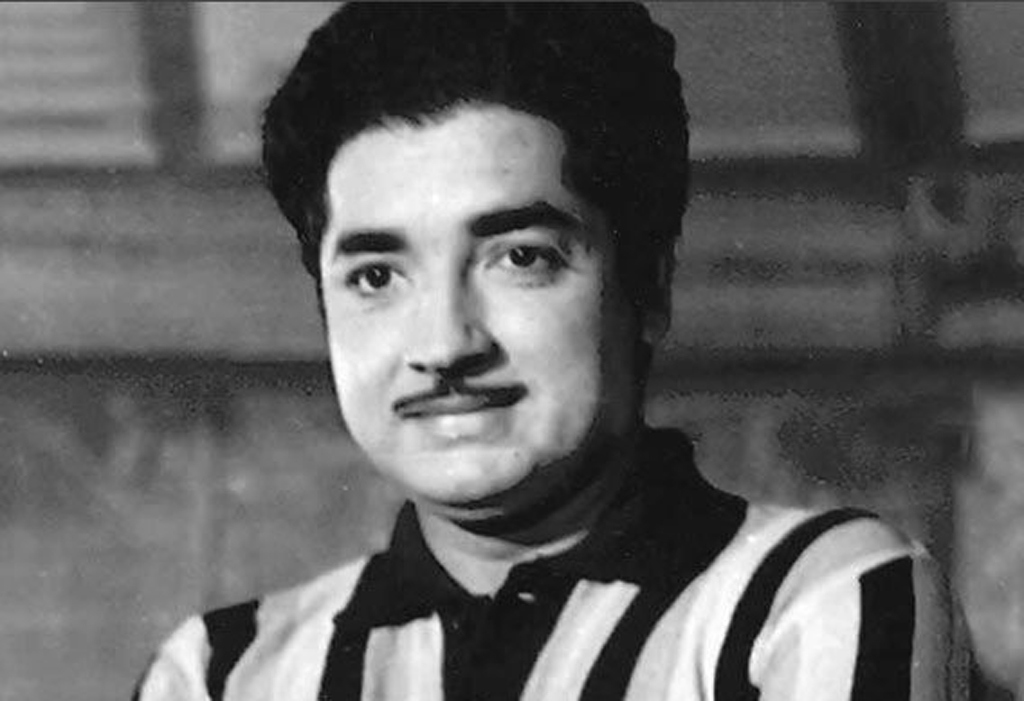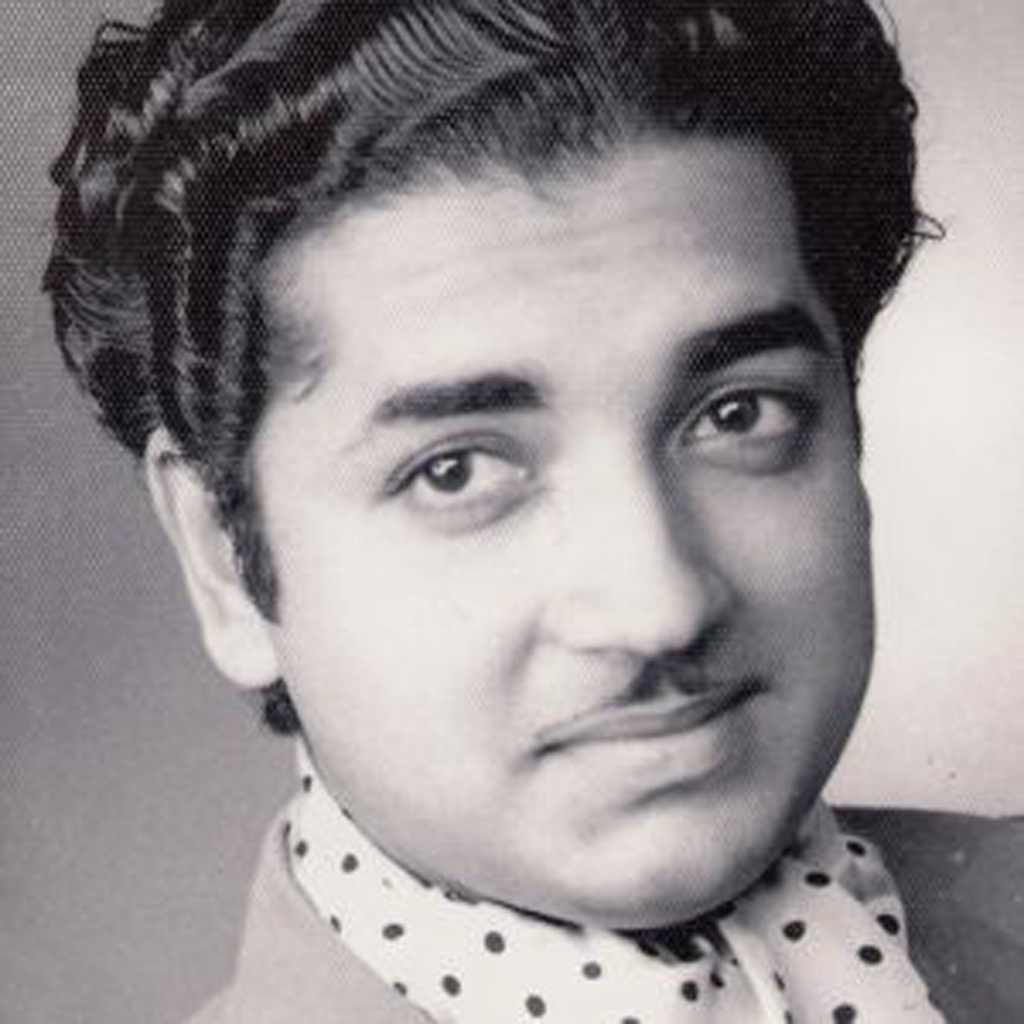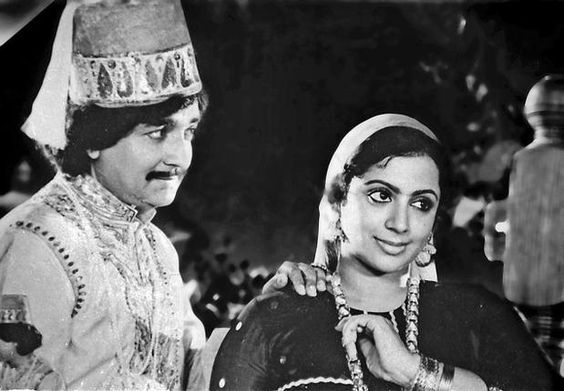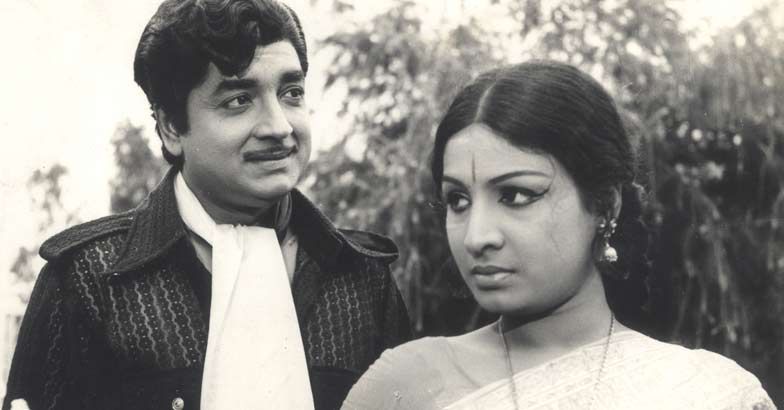18/04/2016
The word 'evergreen' connotes immortality. Perhaps, there is only one actor in Indian screen who has gained this title and that is our own Prem Nazir (1926-1989). Had he been alive, he would have turned 90 this year. A quirky thought would bring us the picture of a well-groomed Prem Nazir going to college with a notebook in his hand, aiming to 'pass' his examinations in 'first class' and also teasing girls clad in short skirts, all at the age of 90. With VFX and prosthetic make up, he would've pulled it off well with his languorous walk and exaggerated gestures. Those actors who came to the scene criticizing Prem Nazir for going to 'college' at the age of 50, ironically or as providence would have it, are still going to college, breaking a few bones and romancing around trees. The only difference is that Prem Nazir used to lip sync the songs so well, but today's reigning stars prefer the songs to be in the background.
In 1989, when television and newspapers announced the death of Prem Nazir in Chennai, Malayalees all over the world shed silent tears. He was just 63 years old (a year younger than Mammootty now.) Unlike in Tamil Nadu where people self-immolated when they heard about their beloved actors' deaths, no one did such atrocities in Kerala. But they remained glued to their Dyanora, Onida and Keltron TV sets, watching the funeral procession in the streets of Thiruvananthapuram. People had come in thousands to pay homage to their beloved actor who was the alter-ego of Malayalee men and the ever-covetable Krishna image in the minds of Malayalee women. Mammootty and Mohanlal, then tipped to be the next big things in Malayalam cinema, held the funeral bier on either side. The newspapers said the next day that they were the right men to perform the last rites of the 'father' figure of Malayalam cinema.
Born as Abdul Khader at Chirayinkeezhu in Thiruvananthapuram district, Prem Nazir was the supreme example of communal integration and harmonious existence of various religious and ideological streams. Even today, when people pass by the road that leads to Prem Nazir's house at Chirayinkeezhu, they tell each other about the great actor who once walked on this very earth. The lore moves on with reverence and some sense of loss. A mimicry artiste gets the maximum applause if he could get Prem Nazir right. No vulgarity could be attributed to Prem Nazir (though, in fact, his characters were at times chauvinists and even voyeurs) and none dares to do so while mimicking him. The audience accept the attempts of these artistes as the grandchildren's playful imitation of a domineering head of a family during a festival afternoon.
Yet Prem Nazir didn't get the title of the 'King of Acting.' The Emperor of Acting was Sathyan, and Madhu was given the title of the 'Emperor of Emoting.' The histrionic abilities of both Sathyan and Madhu, though now they are often looked down upon for under acting or over acting, cinematically framed the 'acting' of Prem Nazir. An actor becomes unique on screen when none would be able to act 'like' him. In that sense, Sathyan and Madhu could beget imitators, but Prem Nazir was irreplaceable because his mannerisms were inimitable at that point of time (his brother Prem Nawas failed miserably after giving a couple of hits and misses.) He didn't even become the 'Action King,' though he used to single handedly decimate large contingents of international mafia led by Jose Prakash, who lived in retrofitted and illuminated caves along with a few wimps and a couple of vamps. Many decades before Sethurama Iyer, a character essayed by Mammootty in the movie 'Oru CBI Diary Kurippu' became convincingly real in his reel life, Prem Nazir’s CIDs were more real than James Bond for Malayalees. His CIDs could masquerade and fool the opponents, just with a mole or a false beard!
Thikkurissi Sukumaran Nair, the grand old actor who easily transitioned from stage to films, was famous for his baptist’s role in Malayalam movie industry. However, the baptism was not on screen. In the off-screen rituals that took place in Madras, the then center of Malayalam cinema, Thikkurissi re-christened many an actor who sought to make it big. He had a special skill to discern the talented and the 'lucky' ones. When Abdul Khader went to act in 'Thyagaseema' (1950-unreleased), Thikkurissi could see a star in him. Even in the mainstream Hindi films that had more or less decided the aesthetics of regional movies in those days, names of the heroes were very important. It was cultural and political at once. The post-independence or the post-partition political scenario in India was so volatile that the business prospects of the movies made with handsome Muslim men in the lead were bleak. The changing of names (including the Hindu ones) was so important that the trend percolated down to the south, and Abdul Khader became Prem Nazir, exactly the way Muhammad Yusuf Khan became the legendary Dilip Kumar.
In Prem Nazir's case, the name says it all. He is Prem, the embodiment of love, if not love itself, and Nazir in Urdu means 'similar or comparable.' In Quranic context, the name means 'beautiful and radiant.' An online dictionary says the word means 'a friend and a help.' Putting both Prem and Nazir together, in fact, gives rise to the image of Lord Krishna, the lover boy, the evergreen lover. Each Radha thought that Krishna was the beautiful and radiant one destined to be her own forever. Each Gopa thought that he was a friend forever. From the Islamic religion, Abdul Khader could create a bridge to the most beloved concept of Hinduism, the Krishna. This must be one reason why the Malayalee audience, irrespective of their religious and political affiliations, accepted Prem Nazir's onscreen waywardness when he teased girls, ogled at them, pulled their hairs, waylaid them, coaxed them, threatened them, stole kisses from them and so on. (Today's feminists would definitely find extreme cases of offence against Prem Nazir if they care to watch his movies of 1960s and 70s.) But the larger cultural context permitted him to do all those shenanigans on screen, because in the very same place and context, he appeared as the negotiator of Dharma. He revealed the reason for his each on-screen incarnation when he annihilated the evil, exactly the way Krishna had done in Mahabharata.
Prem Nazir was never a great actor. He couldn't be even called a methodical actor. But there was something in his personality that made the audience gasp and move toward the edges of their seats. While his act is not methodical, I would say he is an actor who measures his movements and gives the expressions in the right proportions. The films that he acted for almost half of his career were studio bound, and the camera movements were limited. While medium shots were preferred over close ups, long shots, tilted shots and aerial shots, Prem Nazir had to emote 'emphatically' to make his presence distinct from a whole bunch actors present in the shot. In those days, directors and producers knew star power, yet treated the actors in a democratic fashion at least in the film scenes. Hence, in those old movies of Prem Nazir, we don't see the camera zooming in on his face or giving differently angled shots and fast cuts to make his presence dynamic. As technology advanced, we saw Prem Nazir too changing his acting styles.
In the post-independent era, India was looking for some kind of confirmation and affirmation in social and political values. Mahatma Gandhi was dead; a father figure was gone. Nehru was also soon dead and gone. The Indo-China war in 1962 and the Indo-Pak war in 1971 were making people uneasy. They wanted someone to hold them and say that things were okay. For a Malayalee, it was Prem Nazir who provided that protection and comfort. In various genres of movies that Prem Nazir acted, he confirmed that things were alright. People sympathized with him, wept along with him and when K.P. Ummar (another beloved actor) did something wrong, they were outraged. And Prem Nazir was the only actor who was lavishly called 'Nazir' without any 'ettan' or 'ikka' attached to the name. He was universal.
Before I end this essay, it is pertinent to mention the heroines who had helped Prem Nazir to be the onscreen Krishna forever. Nazir-Sheela, Nazir-Jayabharati, Nazir-Sharada, Nazir-Vidhubala - the list could go on. After tremendous amount of the so-called 'eve teasing,' Prem Nazir took these heroines under his wings where they could grow as 'domesticated' wives who would sacrifice anything for the wellbeing of Prem Nazir's character. This was a tremendous confirmation for a society that was treading over shaky grounds. The moral fabric that Prem Nazir helped in weaving was impeccable and steely. That's why toward the end of his career, in a movie called 'Kadathu' (1981), the audience booed him out when Prem Nazir touched Sumalatha's bare legs with a lot of guilt weighing him down. They didn't want to see Prem Nazir falling from grace. They pardoned him when he decided to take his political plunge in the 'Ganga' of the Indian National Congress. The short-lived political romance didn't bring him good, but the people who loved him over four decades took it as a bad dream and left him alone.
Prem Nazir was repeating himself toward the end of 1970s. New actors had come and gone. He was still raking in the moolah, but the tiredness was visible. The arrival of both Mammooty and Mohanlal helped him save his acting career and exist with dignity. He could shift to father figures and the ones who dispensed justice. Balachandra Menon gave Prem Nazir his second lease of life by casting him in films like 'Karyam Nissaram' and 'Prasnam Gurutharam.' He also showed his willingness to act in offbeat films like 'Prem Nazirine Kanamanilla' (1983) by Lenin Rajendran, which had scandalized the staunch Prem Nazir fans.
The legacy of Prem Nazir lives on. When Jayaram comes on stage and says, "now I will try to imitate Prem Nazir sir," Malayalee audience across the world erupt in joy. That's not a small feat for this mimicry artiste-turned actor. And be sure that someone in the generations to come would also imitate Prem Nazir again. Then we would hear, "Amme, ammayude makan ithaa vannirikkunnu, amme. Kannu thurakkoo amme. Ammayude makan first classil passayirikkunnu amme. Madrasil ammayude makanu oru comapniyil nalla sampalamulla joli kitti amme" (Mother, your son has come. Please open your eyes, mother. Your son has passed in first class. He has got a job in a company in Madras with a good salary…). We all will smile then….if not, our children will…if not, their children.




